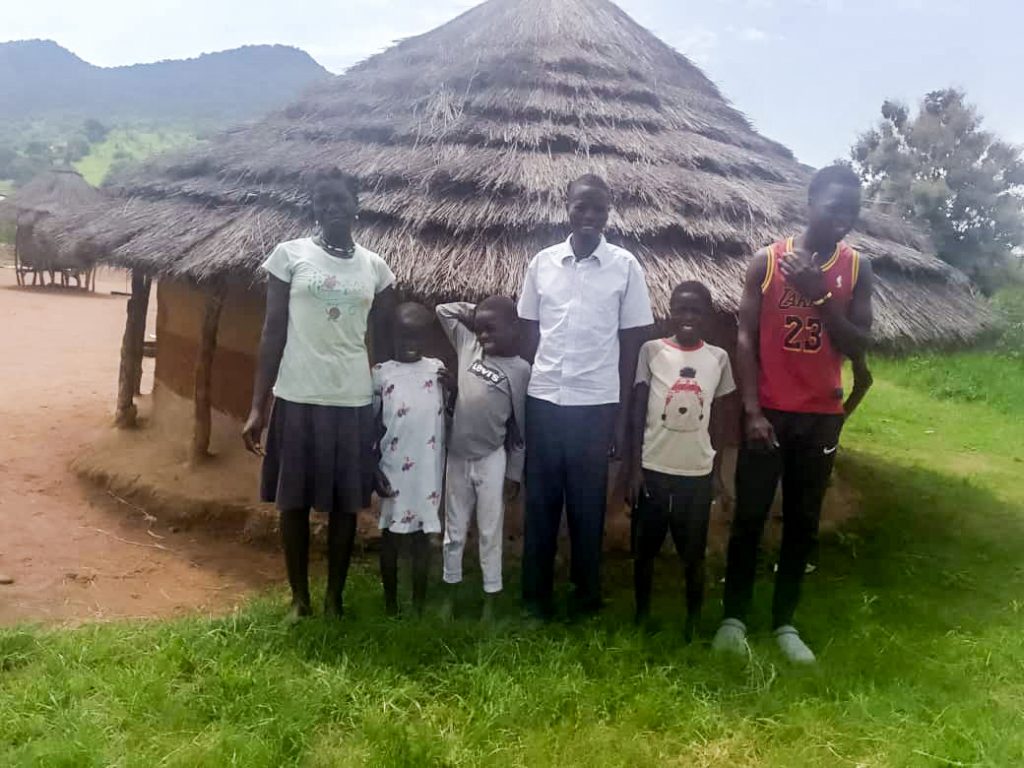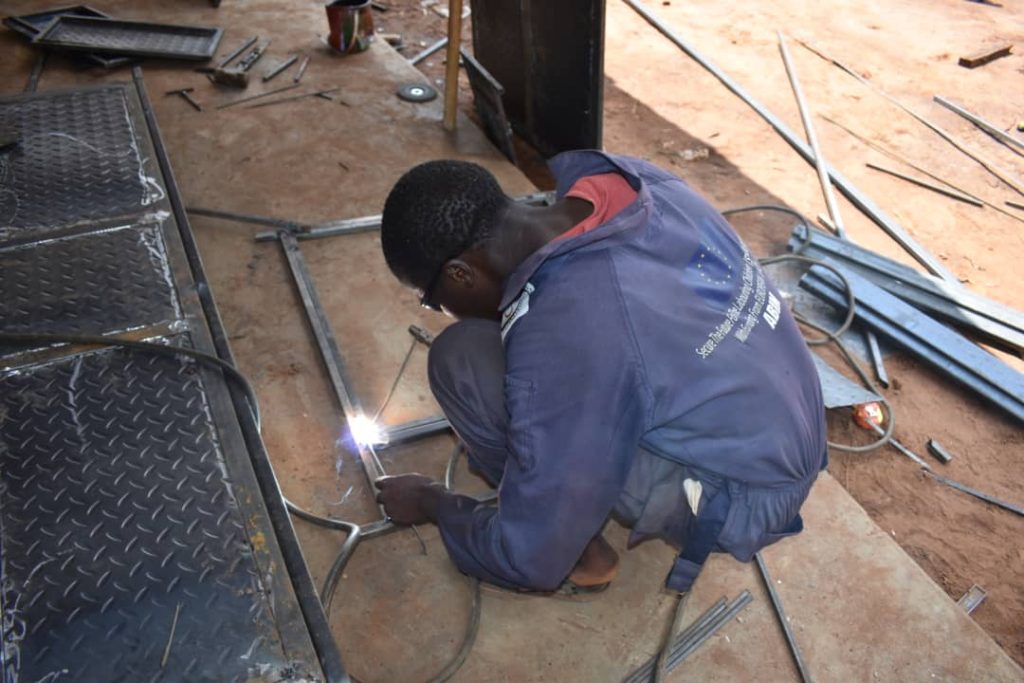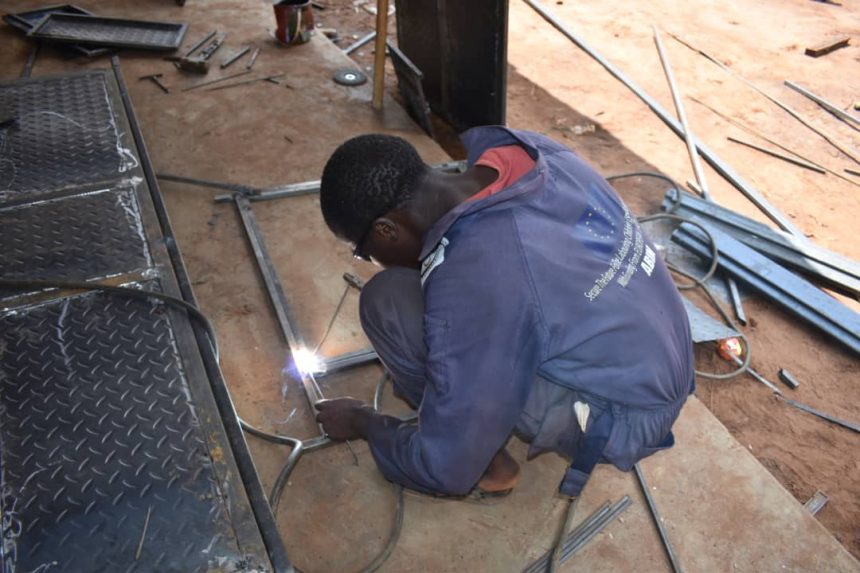Compiled by Namulondo Edith, Programme Officer, SEFULAC Project, Share An Opportunity Uganda.

Two families in Abim district have broken free from the cycle of child labour, reunited children with their parents, and created new income opportunities, thanks to the SEFULAC Project by Share An Opportunity Uganda. The project’s interventions in Aremo Morulem Town Council and beyond have combined training in saving, parenting, and financial literacy with practical livelihood support, transforming lives once trapped by poverty.
When the SEFULAC Project began in the community, both the household of Charles Dodo and that of Dominic and Tereza were struggling to survive. In Charles’ family, two of his three children,14-year-old Benedict and 9-year-old Proscovia—were out of school, while his younger brother Elvis, 17, worked full-time in bricklaying and garden labour to sustain the household. The work brought in at least 16,000 shillings a day, with each person earning 4,000 shillings for six hours of digging. Family tensions were high, and disagreements between Charles and his wife sometimes escalated into domestic violence.

For Dominic and Tereza, all three children, twin boys Opio and Ochen, aged 9, and their sister Christine, aged 13—were out of school. The twins were grazing animals in Kaberamaido, while Christine had dropped out. The family depended on casual garden labour, sometimes done with help from the children. At the start of the project in 2024, Dominic was suffering from a back problem that left him walking with a stick, yet he persisted in attending Self Help Group saving training.
Both families were visited by SEFULAC programme officers and para-social workers, who emphasised the project’s focus on keeping children free from labour. Charles initially expected cash handouts from the training, but later understood the approach was about empowerment, likened by trainers to “teaching to fish rather than giving fish.” Similarly, Dominic’s persistence in attending training led to home visits, during which the staff encouraged him and Tereza to bring the twins back from Kaberamaido. With support from community structures, the boys were reunited with their parents.

The change began with training. Charles and his wife attended sessions on saving through Self Help Groups and positive parenting, which enabled them to make joint decisions and end the constant conflicts. They enrolled Benedict and Proscovia back in school, while Elvis was given the opportunity to join an apprenticeship in metal fabrication and welding. Dominic and Tereza also attended training in saving, child rights and responsibilities, positive parenting, financial literacy, and Business Selection Planning and Management. These sessions inspired them to develop a business plan to generate family income and sustain their children’s education.
Elvis completed his six-month apprenticeship in February 2025. Impressed by his commitment, his trainer retained him as an employee. His monthly earnings now range between 150,000 and 200,000 shillings, with daily bonuses of 10,000 to 20,000 shillings on busy days and at least 5,000 shillings on slower days. Since February, he has been saving 4,000 shillings weekly in a Self Help Group.
For Dominic’s family, the recovery was also physical. With medical support from the project, Dominic overcame his back problem and returned to work. The family enrolled all three children at Adea Primary School, determined to keep them there. “I will struggle to see that my children study. Thank you SAO Uganda for bringing my boys back home,” Dominic said.
Today, both households demonstrate that breaking the cycle of child labour is possible when economic empowerment, parental mindset change, and community support work together. The SEFULAC Project’s holistic approach has not only restored children to school but also equipped families with the tools to build a sustainable future.


Leave a Reply